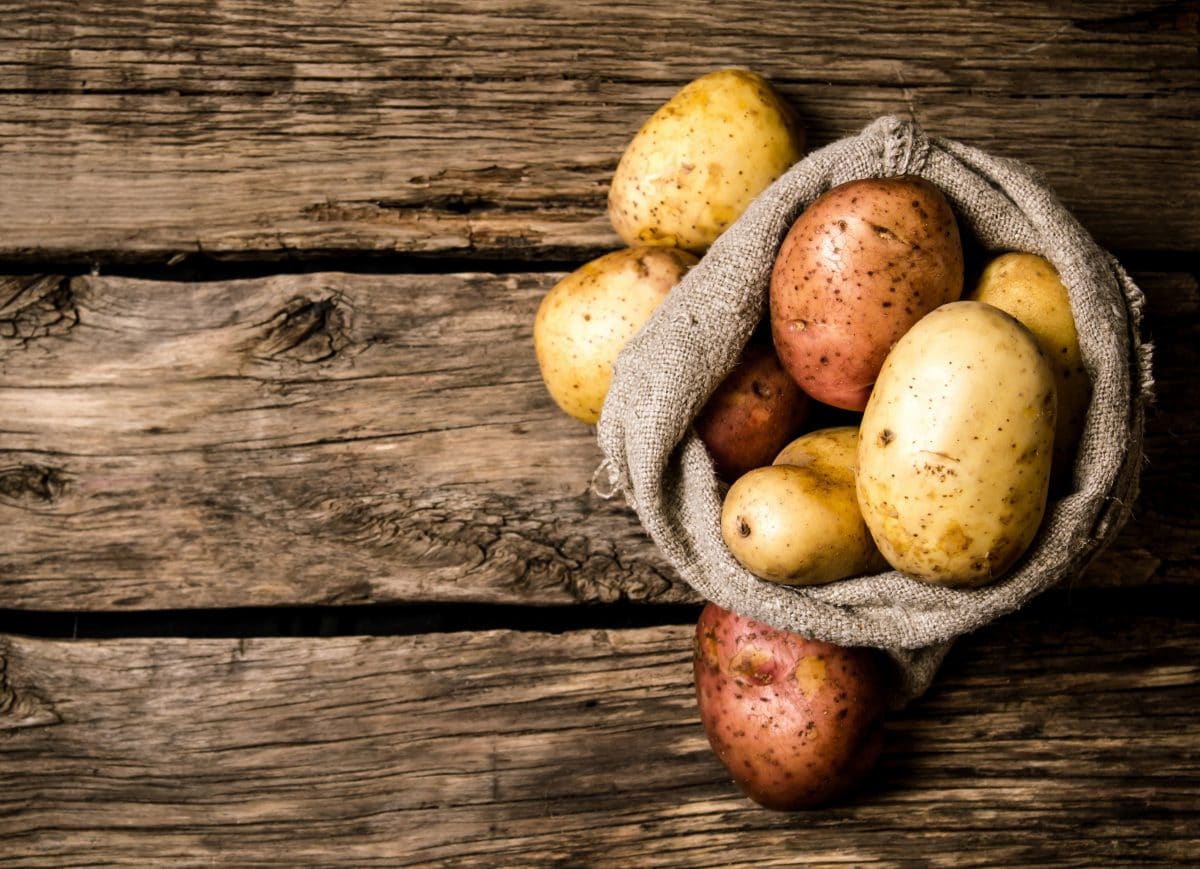Are potatoes low FODMAP?
- Low FODMAP diet
Potatoes are a diverse vegetable that could be part of your daily diet, but are potatoes low FODMAP?
In this article, we will discuss which potatoes are FODMAP friendly. We will also share delicious low FODMAP potato recipes for you to try at home!

What are potatoes?
Potatoes are underground tubers. They come in a wide variety of sizes, colours, shapes and textures.
Interestingly, how potatoes are prepared can impact their effects on gut health. For example, you can leave the skin on for a fantastic source of fibre. Potatoes can also be a good source of resistant starch (1).
Are potatoes FODMAP friendly?
This section will discuss the FODMAP content of white and sweet potatoes, as both potatoes do not have the same FODMAP content.
White potatoes
White potatoes, otherwise known as Solanum tuberosum, are low FODMAP, according to the Monash App (2). They can be eaten “freely and according to appetite” and will still remain low FODMAP.
Sweet potatoes
Sweet potatoes are packed with fibre, vitamins A and C, magnesium and potassium (3).
At 75g (½ cup), sweet potatoes are low in FODMAPs. Servings larger than 100g (⅔ cup) are considered to be moderate in FODMAPs. This is due to the moderate amounts of mannitol, a polyol it will contain (4).
However, sweet potatoes can be enjoyed as part of a low FODMAP diet at the recommended serving size stated above. But you should be cautious of FODMAP stacking if you are eating other FODMAP-containing foods.
Are potato chips low FODMAP?
Plain potato chips that only consist of potatoes, oil and salt are low FODMAP. However, flavoured potato chips are often high in FODMAPs due to the added ingredients.
Common high FODMAP ingredients added include:
- Garlic powder
- Onion powder
- Lactose
- Sour cream
- Buttermilk
- Milk protein concentrate
- Honey
Resistant starch
Potatoes can be a great source of resistant starch. To increase the resistant starch content, you can cool potatoes overnight after cooking. This has been shown to triple their resistant starch content (5).
Resistant starch reaches the large bowel undigested. Here, it provides fuel for your good gut bacteria, acting as a prebiotic (6). Your gut bacteria can use the resistant starch to make short-chain fatty acids like butyrate, beneficial for the health of your gut lining (7, 8).
Resistant starch differs from FODMAPs in terms of speed of fermentability. FODMAPs are rapidly fermented. This can cause IBS symptoms such as gas, bloating, abdominal pain and discomfort.
In comparison to this, resistant starch is slowly fermented and the gas is released at a slower rate. This is less likely to cause IBS symptoms than FODMAPs (9). However, IBS is individual and some people may find that resistant starches still trigger IBS symptoms.
Low FODMAP potato recipes
You can enjoy potatoes in various ways – baked, steamed, boiled, roasted, mashed, fried and grilled! Potatoes with skin are a good source of fibre, vitamin C and B6, magnesium and potassium (10).
Here are some low FODMAP recipes using potatoes that you can try at home:
- Crispy roasted potatoes
- Mini sweet potato & carrot casseroles
- Vegan 3-ingredient crispy smashed potatoes
- Sheet pan lemon and rosemary roasted potatoes
- Creamy thyme mashed potatoes
- Spicy potato pie
- Sweet potato hash browns
- Mashed sweet potatoes with candied spiced pecans
- Turkey chilli with sweet potato and lentils
- Broccoli sweet potato enchiladas
Summary
Potatoes are nutritious and can be enjoyed as part of the low FODMAP diet. Depending on how you prepare them, they can be a great source of resistant starch. You can still enjoy sweet potatoes but in smaller amounts due to their higher FODMAP content.
Written by Leeona Lam MSc, ANutr and reviewed by Beth Willson Specialist Surgical Dietitian BSc Hons RD